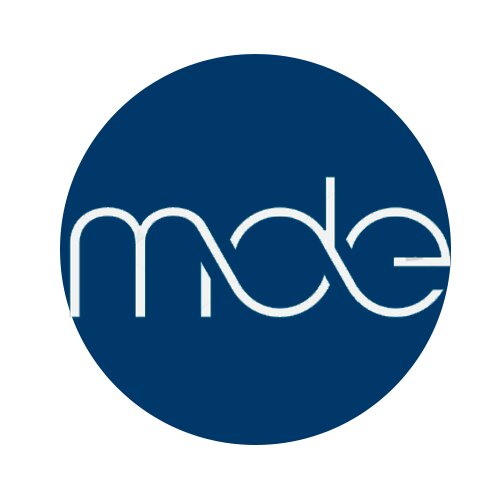Best Criminal Litigation Lawyers in Adeje
Share your needs with us, get contacted by law firms.
Free. Takes 2 min.
List of the best lawyers in Adeje, Spain
About Criminal Litigation Law in Adeje, Spain
Criminal litigation in Adeje, Spain, refers to the legal processes that arise when someone is accused of committing a criminal offense under Spanish law. Adeje, located in Tenerife in the Canary Islands, follows the same criminal legal framework as the rest of Spain, with special enforcement by local police and courts. These proceedings can range from investigation, arrest, and questioning to court trials and sentencing. The primary aim is to determine whether an individual has broken the law and, if so, impose the appropriate penalties or measures. Criminal litigation in Adeje can involve both minor misdemeanors and serious crimes, and typically requires familiarity with Spanish criminal procedures and defense rights under the law.
Why You May Need a Lawyer
There are many situations where seeking legal help in criminal litigation becomes critical in Adeje. If you are accused of a criminal offense, face arrest, or are under police investigation, a criminal defense lawyer can protect your rights and guide you through complex legal procedures. Lawyers can also assist victims of crime by representing their interests in court. Common scenarios requiring a lawyer include allegations of theft, assault, drug-related offenses, traffic incidents with criminal repercussions, domestic violence, or white-collar crimes. Even non-Spanish residents or tourists may find themselves needing legal assistance due to misunderstandings or unfamiliarity with local laws. Legal representation ensures that individuals have a fair trial and access to resources that can significantly affect the outcome of their cases.
Local Laws Overview
The legal system in Adeje is based on Spanish national laws, especially the Spanish Penal Code and the Criminal Procedure Law. Key aspects relevant to criminal litigation include:
- The right to remain silent and to legal counsel during police investigations and court proceedings.
- Obligation for authorities to provide translators for non-Spanish speakers during interrogations and trials.
- Types of criminal offenses include minor misdemeanors and more serious charges known as "delitos" (crimes).
- The prosecution is typically led by the public prosecutor (Ministerio Fiscal), but victims can also have an active role as "acusación particular."
- Penalties can range from fines and community service to imprisonment, depending on the gravity of the offense.
- Summary proceedings may be used for straightforward, less serious offenses, while more complex cases follow full trial procedures.
- Non-residents accused of crimes may face travel restrictions until their cases are resolved.
- Youth offenders are subject to a special system emphasizing rehabilitation over punishment.
Local police and the Guardia Civil are typically the first authorities involved, with cases ultimately handled in courts in or near Adeje.
Frequently Asked Questions
What should I do if I am detained by the police in Adeje?
You have the right to remain silent and to request a lawyer. Do not sign any documents or make statements until legal counsel is present. If you are not fluent in Spanish, request an interpreter.
How long can the police hold me before charging or releasing me?
Generally, police can detain you for up to 72 hours. After this, you must be either released or brought before a judge who will determine your next steps.
What are my rights as a foreign national in criminal cases?
You are entitled to the same rights as Spanish citizens, including legal representation and translation services. You are also entitled to contact your consulate.
Can I have a lawyer of my choice represent me?
Yes, you can choose your own lawyer. If you cannot afford one, the state will provide a public defender who is qualified to represent you.
What is the role of the public prosecutor?
The public prosecutor represents the interests of the state and is responsible for presenting the case against the accused in court.
What happens if I am convicted of a crime?
If convicted, you may face penalties such as fines, community service, or imprisonment. You have the right to appeal the decision within specified legal timeframes.
Can victims participate in criminal litigation?
Yes, victims can participate as "private accusers," allowing them to present evidence and request specific penalties.
How long do criminal proceedings usually take in Adeje?
Duration varies depending on the complexity of the case. Simple cases may conclude within a few months, while complex matters can take a year or more.
Are criminal records public in Spain?
Criminal records are not public but may be accessed by judicial authorities and in certain legal situations, such as employment screening for sensitive roles.
What if I do not attend my court date?
Failing to attend can result in an arrest warrant and may negatively affect your case. Always consult your lawyer if you have difficulty appearing in court.
Additional Resources
If you require further help or information, consider reaching out to the following:
- Adeje Town Hall (Ayuntamiento de Adeje) - for local administrative guidance.
- Guardia Civil and Policía Local de Adeje - for police matters and legal reporting.
- Juzgado de Instrucción de Arona - the nearest court handling criminal cases in Adeje.
- Ilustre Colegio de Abogados de Santa Cruz de Tenerife - the local bar association for finding certified criminal lawyers.
- Spanish Ministry of Justice - for national legal frameworks and resources.
- Local consulates or embassies - for assistance to foreign nationals facing legal difficulties.
Next Steps
If you or someone you know is facing criminal litigation in Adeje, it is crucial to act promptly. Start by:
- Contacting a qualified criminal defense lawyer as soon as possible for advice and representation.
- Gathering and preserving any relevant documents or evidence that could be important to your case.
- Requesting an interpreter if you are not comfortable with Spanish to ensure you understand the process fully.
- Reaching out to your consulate if you are a foreign national for additional support.
- Following your lawyer’s advice about communicating with police or court authorities.
The criminal justice process can be complex and intimidating, especially if you are unfamiliar with Spanish law. Swift and informed action increases your chances of achieving a favorable outcome and protecting your rights in Adeje’s legal system.
Lawzana helps you find the best lawyers and law firms in Adeje through a curated and pre-screened list of qualified legal professionals. Our platform offers rankings and detailed profiles of attorneys and law firms, allowing you to compare based on practice areas, including Criminal Litigation, experience, and client feedback.
Each profile includes a description of the firm's areas of practice, client reviews, team members and partners, year of establishment, spoken languages, office locations, contact information, social media presence, and any published articles or resources. Most firms on our platform speak English and are experienced in both local and international legal matters.
Get a quote from top-rated law firms in Adeje, Spain — quickly, securely, and without unnecessary hassle.
Disclaimer:
The information provided on this page is for general informational purposes only and does not constitute legal advice. While we strive to ensure the accuracy and relevance of the content, legal information may change over time, and interpretations of the law can vary. You should always consult with a qualified legal professional for advice specific to your situation.
We disclaim all liability for actions taken or not taken based on the content of this page. If you believe any information is incorrect or outdated, please contact us, and we will review and update it where appropriate.









